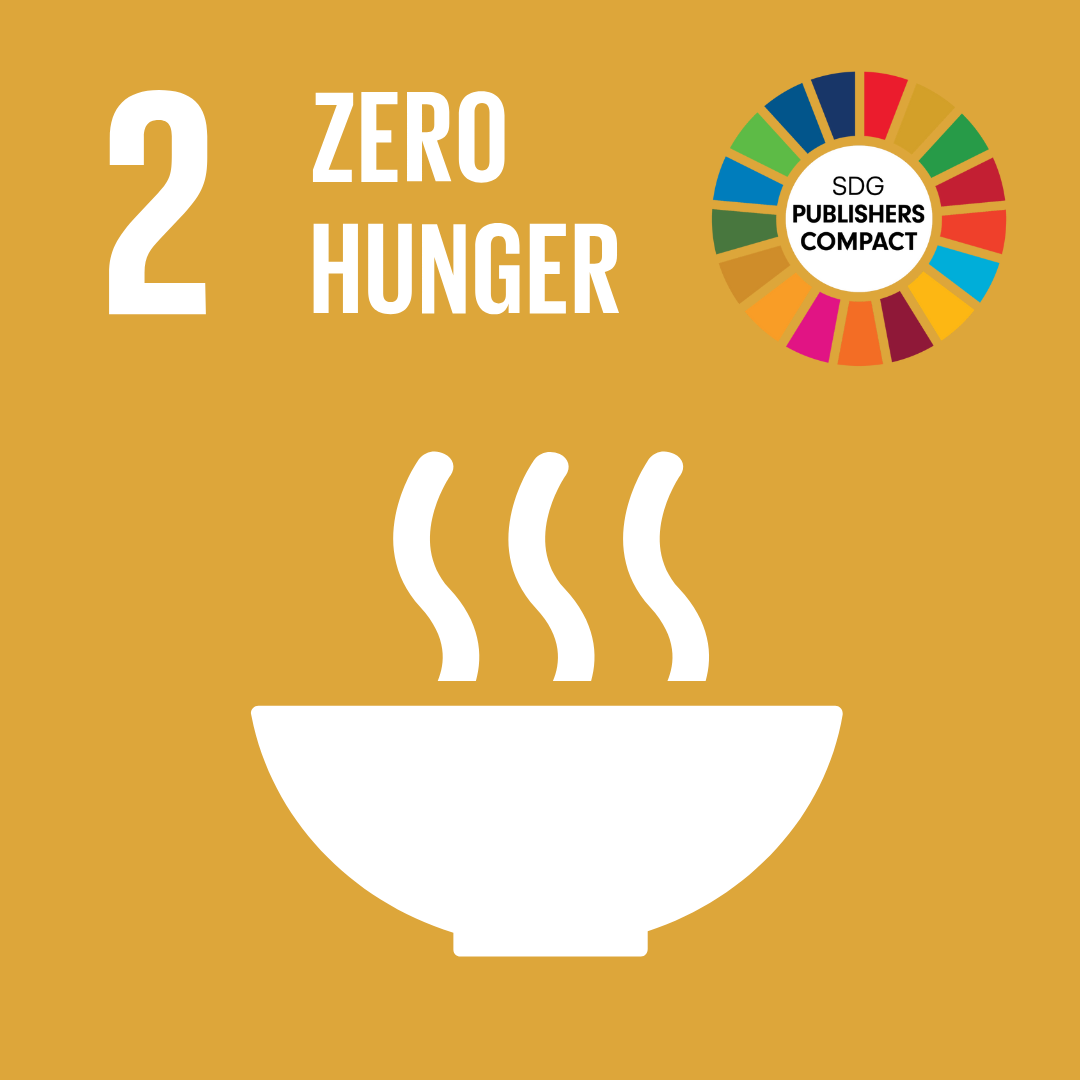Resumo
Objetivo: Este artigo tem como objetivo avaliar o progresso e os desafios associados ao Objetivo de Desenvolvimento Sustentável 2 (Fome Zero), com foco na erradicação da fome e desnutrição e na implementação de sistemas alimentares resilientes até 2030.
Método: Foi realizada uma revisão de dados secundários a partir de literatura publicada e relatórios das Nações Unidas. A análise compara as tendências globais de segurança alimentar, examina as causas da fome e discute os mecanismos para alcançar a meta de Fome Zero.
Resultados: Apesar dos esforços globais, a fome e a insegurança alimentar aumentaram nos últimos anos, afetando 690 milhões de pessoas. Os principais desafios incluem as mudanças climáticas, conflitos e os impactos socioeconômicos da pandemia de COVID-19. Os dados sugerem que investimentos em agricultura, igualdade de gênero no acesso a recursos e programas de proteção social são essenciais para reduzir a fome e alcançar sistemas alimentares sustentáveis.
Conclusões: Alcançar a Fome Zero até 2030 requer esforços globais conjuntos, especialmente nos países em desenvolvimento. Ações imediatas devem ser tomadas para fortalecer as cadeias de abastecimento alimentar, promover a produtividade agrícola e enfrentar as vulnerabilidades exacerbadas pelas crises recentes. A continuidade no foco em igualdade de gênero e agricultura resiliente ao clima é crucial para a segurança alimentar a longo prazo.
Referências
Adegbami, A. and Adesanmi, O. (2018): Nigeria’s Educational System and Sustainable Development Goals’ Attainment: ‘A Wild Goose Chase’. Journal of Contemporary Asia 5 (1) pp. 217-233
Adegboye, R. O. (2004), “Land, Agriculture and food security in Nigeria”, Faculty lecture, Faculty of Agriculture, University of Ilorin, Ilorin, Kwara State
Central Bank of Nigeria (2016), “Nigerian gross domestic product composition”, available online at: www.cenbank.org
FAO (1996), “Rome Declaration on World Food Security Summit Action Plan”, World Food Summit 13-17 November 1996. Rome. Pp. 13-17.
Fawole, W.O. (2017), “Assessment of food security situation among households in south western Nigeria Post-MDGs era”, PhD Dissertation, Unpublished
Fawole, W.O., Ozkan, B., and Ayanrinde, F.A. (2016), “Measuring food security status among households in Osun State, Nigeria”, British Food Journal, Vol. 118 No 7, pp. 1554 – 1567.
Food and Agricultural Organization (2017). State of food security and nutrition in the World in 2017: Building Resilience For Peace and Food Security. Food & Agriculture Organization
Gizem Deniz B.B, Aslıhan C. and Kamuran O. (2020): Food Insecurity and Affecting Factors in Households with Children During the Covid-19 Pandemic: A Cross-Sectional Study (Accepted). Disaster Medicine and Public Health Preparedness. DOI: 10.1017/dmp.2021.172
Mamadou, F. and Tara, F.D. (2006), “Persistent hunger: Perspectives on vulnerability, famine, and food security in Sub-Saharan Africa”, Annual Review of Anthropology, Vol. 35,pp. 521-538.
Martin, R. R. (2004), “Food Aid”, African Security Review, Vol. 13 No. 1, pp. 83-89 Ogundari, K. (2013), “Determinants of food-poverty states and the demand for dietary diversity in Nigeria”, Contributed paper prepared for presentation at the 4th International Conference of the African Association of Agricultural economist (AAAE), Cape Town, Hammamet, Tunisia, 22 - 25 September, 2013.
Ogundari, K. (2017), “Categorizing households into different food poverty levels in Nigeria: The socio-economic and demographic determinants”, Agricultural and Food Economics, 5:8, pp. 1 – 20. DOI: 10.1186/s40100-017-0076-y
Olanike, D., William, S. and Deji, S. (2007), “Socio-cultural factors influencing the feminization of HIV/AIDS in the rural area of Nigeria: Implication of food security”, Research Journal of Social Sciences, Vol. 2, pp. 7-13.
Sanusi, R. A., Badejo, C. A. and Yusuf, B. O. (2006), “Measuring Household Food Insecurity in Selected Local Government Areas of Lagos and Ibadan, Nigeria”, Pakistan Journal of Nutrition, Vol. 5 No. 1, pp. 62-67
United Nations (1975), “World Food Summit”, 1974, Rome, Italy, 5-16 November 1974. New York, available online at: www.fao.org
Wu, W., Yanga, P., Tanga, H., Youd, L., Zhoua, Q., Chena, Z. and Shibasaki, R. (2011), “Global-scale assessment of potential future risks of food insecurity”, Journal of Risk Research, 14:9, 1143-1160, DOI: 10.1080/13669877.2011.57179.

Este trabalho está licenciado sob uma licença Creative Commons Attribution 4.0 International License.


